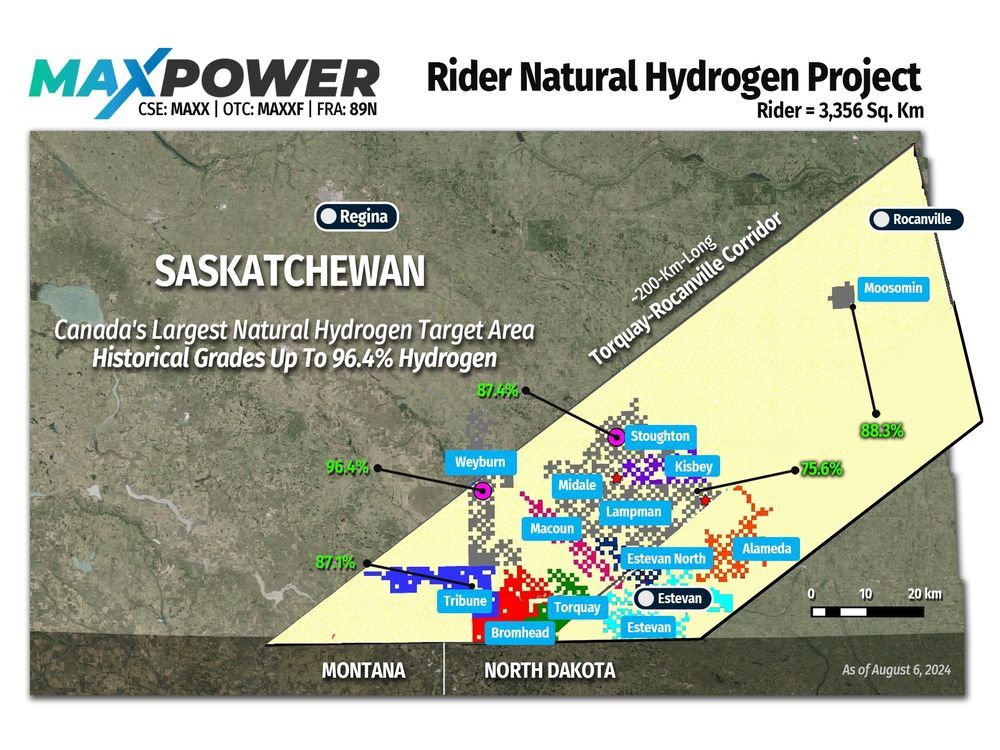MAX Power Expands Rider Natural Hydrogen Project in Saskatchewan
Key Ideas
- MAX Power Mining Corp. has significantly increased the size of its Rider Natural Hydrogen Project in southeast Saskatchewan, making it Canada's largest natural hydrogen target area.
- The expansion includes the staking of 2,112 additional sq. km, bringing the total area covered by the project to 3,356 sq. km, based on extensive research and data modelling.
- Historical hydrogen grades as high as 87.1% have been found in the newly acquired claim blocks, indicating the potential for significant hydrogen gas accumulations through natural processes like serpentinization or fracture zones.
- CEO of MAX Power, Mr. Rav Mlait, expressed enthusiasm about the findings, highlighting Saskatchewan's promising position for discovering North America's first naturally occurring hydrogen gas deposits.
MAX Power Mining Corp. based in Vancouver, British Columbia, has made a substantial expansion to its Rider Natural Hydrogen Project in southeast Saskatchewan. By tripling the size of the project, MAX Power now covers a total area of 3,356 sq. km, making Rider Canada's largest natural hydrogen target area. This expansion involved staking an additional 2,112 sq. km of land along the Torquay-Rocanville Corridor after identifying historical hydrogen occurrences and favorable geological features.
The newly acquired claim blocks, including areas named 'Tribune' and 'Bromhead,' have shown high hydrogen grades, with the Tribune area revealing an impressive 87.1% hydrogen content in an old well. These findings suggest the potential for significant hydrogen accumulations, especially with evidence of hydrogen migration to the surface through natural processes like serpentinization or fracture zones.
MAX Power's CEO, Mr. Rav Mlait, expressed excitement about the discoveries, emphasizing the significance of the historical data and geological context observed in Saskatchewan. He stated that the findings align well with the company's proprietary model and position Saskatchewan favorably for uncovering North America's first naturally occurring hydrogen gas deposits.
